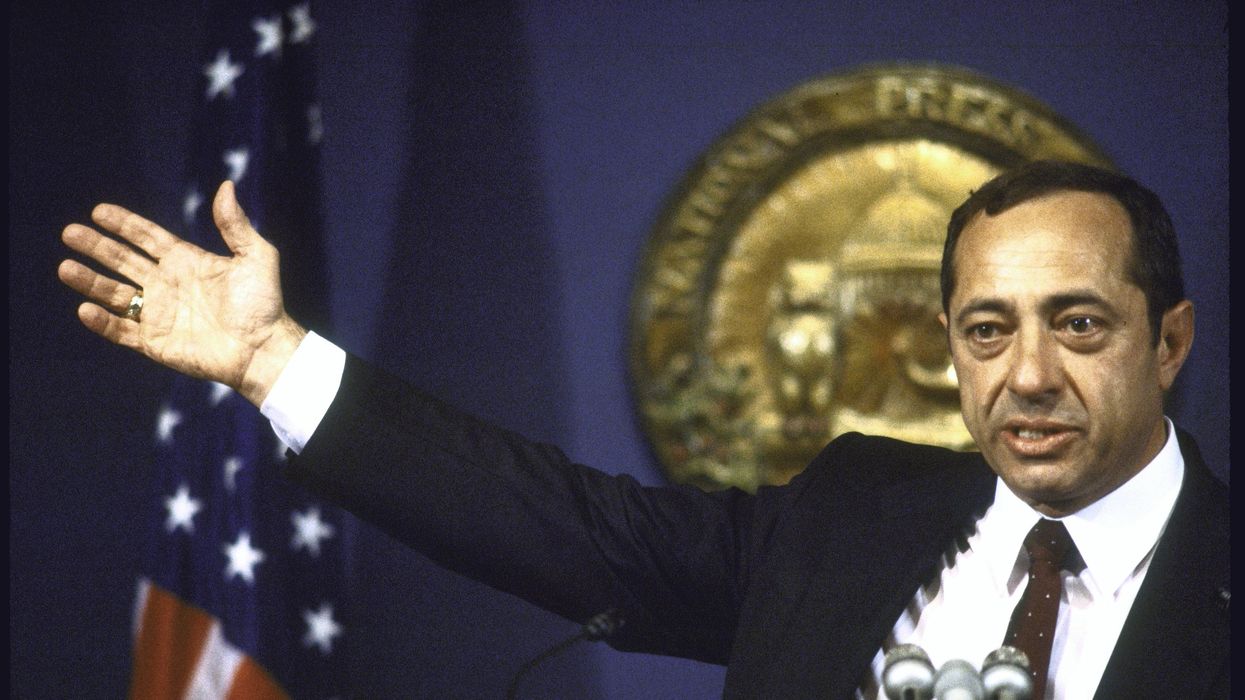Anderson edited "Leveraging: A Political, Economic and Societal Framework," has taught at five universities and ran for the Democratic nomination for a Maryland congressional seat in 2016.
April is a good month to be thinking about poetry because it is National Poetry Month in the United States.
Former New York Gov. Mario Cuomo famously said, "You campaign in poetry. You govern in prose." This brilliant formulation may be how things should be. It may be how things used to be.
Today, campaigns are soaked in lies and negativity. They reflect poverty, not poetry. No one governs in prose either. Governance is a wild mixture of Hollywood, policy arguments, battle, horse trading and charisma. Cuomo was getting at the point that in campaigns the candidate must inspire voters with a vision that awakens them the way David Hume in the 18th century awakened Immanuel Kant from, as he said, his dogmatic slumbers. Hume motivated Kant to see that although all knowledge of the world does indeed begin with sensation, our minds impose a conceptual structure on every sensation we experience.
Campaigns today are more inclined to convince you that the candidate's opponent is dangerous to democracy or to grab you by the throat (or some other bodily parts) and pit you against the candidate's opponent by using a major wedge issue as if it were an ax. Candidates do tell you things they intend to do, some of which they may be able to do. But most of their promises rely on support from Congress, if they are running for president, or the rest of Congress and the president if they are running for the House or the Senate. You would think everyone was running for king based on how many times they say what "I will do" when they get into office.
There is no quick fix to the pathetic nature or our campaigns, especially the truck loads of money that are needed to run them, or the dysfunctional nature of our system of governance in Washington, D.C. Yet we might start by taking a page from Cuomo's book and creating a tone in our electoral politics that reminds us of poetry.
Now, poets of course differ — there are the classical poets like Pope and the romantic poets like Wordsworth, metaphysical poets with creative conceits like John Donne, pure masters of the ear like Alfred Lord Tennyson. The world's greatest dramatist, William Shakespeare, was also a master of the sonnet. Then there’s 20th century towering poets like T. S. Eliot and William Butler Yeats, fierce social and political poets like Langston Hughes and Adrienne Rich, poets of depression like Sylvia Plath, lone beautiful voices like Emily Dickinson, and straightforward, graceful poets like Robert Frost. And these are just the English-speaking poets.
But whether they are complex or graceful, racy, musical, rhymers or poets of free verse or blank verse, they are not offensive, though they may be jarring to the ear. And they are always illuminating. Yes, campaigns would be better if they were more illuminating and less intrusive, destructive and offensive. Candidates should also actually recite some poetry. I did — when I started my campaign in what became a high-profile Democratic primary in Maryland that my friend Jamie Raskin ultimately won.
Former Minnesota Sen. Eugene McCarthy was a poet, and he was joined by the poet Robert Lowell on the campaign trail in his race for president. McCarthy, who was against the Vietnam war, was eloquent and unlike Lyndon Johnson in almost every way. Some memorable lines:
- "This is, I say, the time for all good men not to go to the aid of their party, but to come to the aid of their country."
- "We do not need presidents who are bigger than the country, but rather ones who speak for it and support it."
- "I’m kind of an accidental instrument, really, through which I hope that the judgment and the will of this nation can be expressed."
My finance director convinced me that reciting a poem at each fundraiser, where my aim was to change the tone of politics step by step, would kill my campaign. So I caved and put the poetry aside.
One part of the strategy for changing our campaigns is thus to revisit Cuomo's dictum for how campaigns should be — they should be poetry in their tone and even include a bit of poetry. Changing our system of governance is a much more complicated and massive enterprise. But if we can change the tone of our campaigns by making them more poetic, then this will help change the tone and the substance of our system of governance.




















Marco Rubio is the only adult left in the room